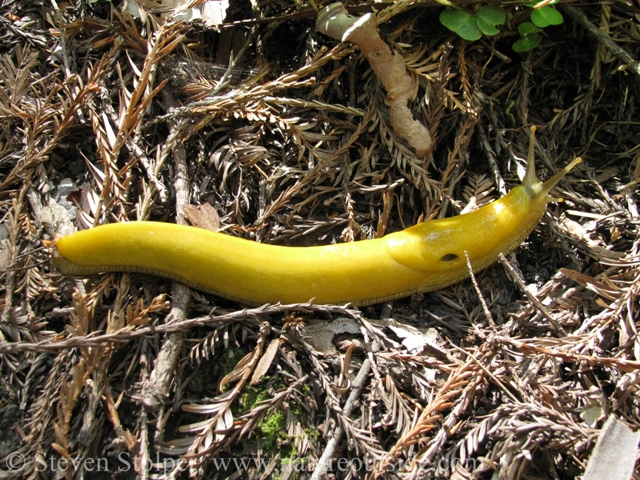
So it rained in Northern California. Not much. Not everywhere. But we can use every drop.
For the last three years, California has experienced a severe drought. And it is likely to persist for several years to come. The “El Nino” effect that often brings heavy rains to California is forecast to be weak this year. So it is unlikely to relieve our parched state.
Each summer, as our forests in California dry out, the Banana Slugs quietly disappear. With the drought, their absence has been more poignant. People wonder aloud how they are faring and worry about their safe return in the fall when the rains begin (if they begin).
The Fickle Human Memory
So often, when a species disappears from our surroundings, we take no notice. It just fades from memory. If it reappears we are startled. We marvel that we never noticed it was gone.
This, of course, is the insidious nature of habitat destruction. Species disappear from our neighborhoods without us ever noticing. Once they are gone they quickly fade from memory.
Organic farmers are often surprised when bird species from their childhoods return to their fields. They had never noticed they were missing! But once the farmers begin practicing organic methods, they are pleasantly surprised by the return of old friends.
The Banana Slug — An Animal that Commands a Room
But the Banana Slug is different. This is a mollusk with flash and style. The Banana slug oozes character, charisma, and dare I say it: je ne sais quoi.
The Banana Slug is even the official mascot of U.C. Santa Cruz. A friend from the school would root, root, root for the “Fighting Banana Slugs!” 🙂
According to UCSC’s official website, ESPN named the Banana Slug one of the 10 best college basketball mascots in 2008. In 2004, Reader’s Digest named it the best! It has been covered by People magazine, and Sports Illustrated magazine once named the Banana Slug the nation’s best college nickname.
So when a 10 inch long bright yellow slug goes AWOL, you take notice! But the recent rains have brought out the slugs, and many local residents are overjoyed to see them again.
Where do the Banana Slugs Go?
Banana Slugs near me (Ariolimax dolichophallus) are found in redwood forests along the Pacific Coast. They live on forest floors where they perform a vital role in decomposing plant material.
Although they have lungs, Banana slugs do respire through their skin and must remain moist for the gas exchange to occur. This limits them to moist habitats, where they shelter among forest debris and under logs.
During hot, dry periods, Banana slugs secrete a protective layer of mucus and enter estivation. Estivation is the summer analog of hibernation. The slugs become dormant to protect themselves from desiccating in the hot dry air.
So these long hot, dry months of drought have meant no banana slugs.
Meet the Banana Slug
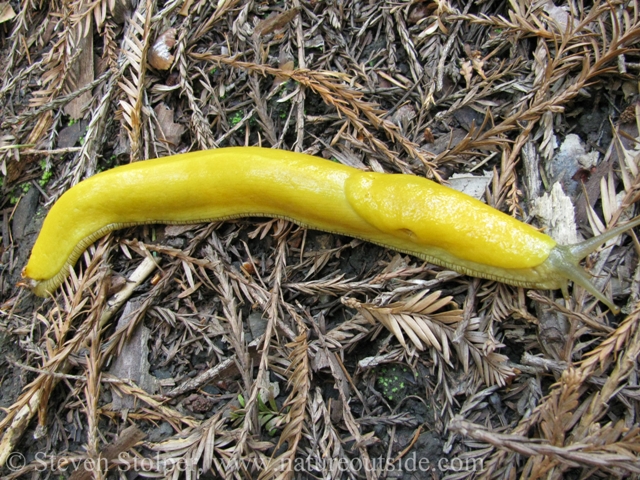
Banana Slug – Note the mantle with its pneumostone
Banana slugs are the second largest slugs in the world (the largest in the United States). They remind me of animated bananas – They are that large!!!
Banana slugs are mollusks and have a large muscular foot for locomotion. They possess a dorsal hump (mantle), which has an opening on the right side (pneumostone) that is connected to its lungs.
They have two pairs of tentacles! The larger set is light sensitive and used for navigation. You can see a dark eye at the end of each of them. The second, shorter pair of tentacles provides tactile input and “smells”. If the slug feels threatened, it can retract both sets of tentacles with surprising speed!
The slug’s mouth lies between the lower set of tentacles. Like other mollusks, it has a radula. It is a tongue-like organ covered in tiny teeth. Although I have never tried it, friends tell me that if you pick one up and let it become comfortable, it will try to “taste” your hand. They tell me that being tasted by the slug is noticeably painful!
In the wild, slugs can live as long as seven years.
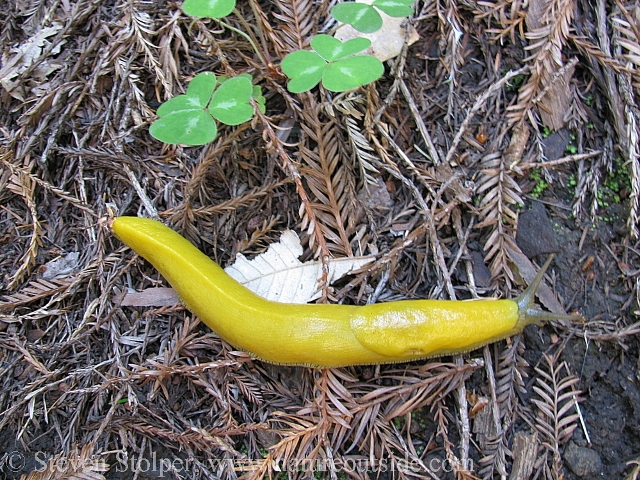
Banana Slug with Redwood sorrel (Oxalis oregana)
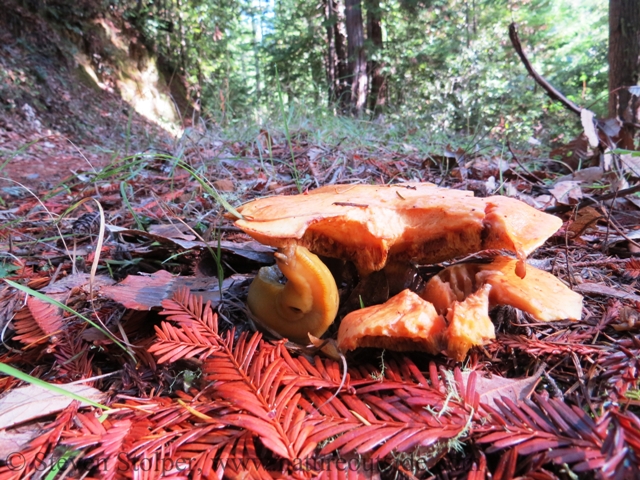
Banana slug consuming a mushroom by the side of the trail.
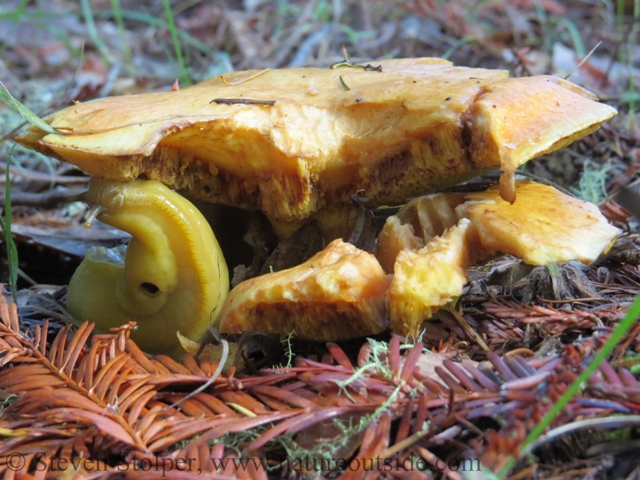
The banan slug uses its radula to scrape/cut food and move it into its mouth.
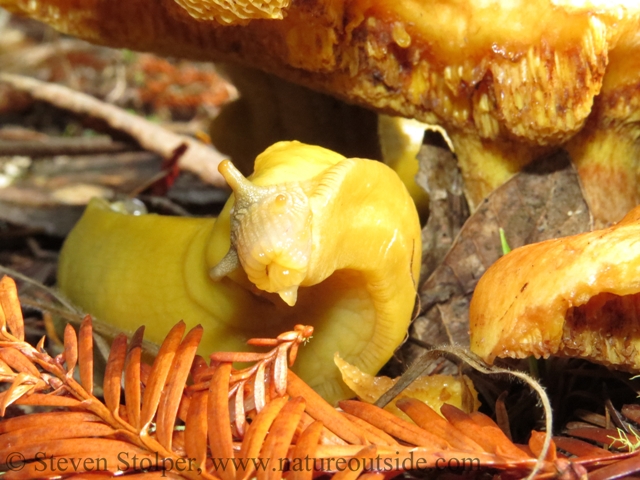
A rare picture of a banana slug’s mouth. Apparently it chews with its mouth closed.
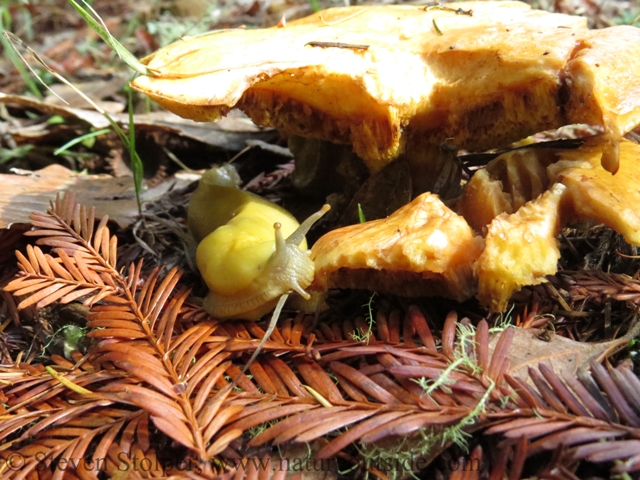
Notice how this slug is using its four antennae. The slug’s left eye stalk (upper) inspects the top of the mushroom as it feels/smells it (lower).
It’s All About Sex
If you think the slug’s appearance is strange, brace yourself for its romantic life!
To attract mates, Banana Slugs release a pheromone in the slime trail they leave behind. Prospective mates track the trail to meet up with a partner. Mating usually occurs at night, but I have seen them coupled during the day.
Banana slugs are simultaneous hermaphrodites. They possess both male and female sexual organs and use them simultaneously during copulation. They attach at the genital opening underneath the mantle. Each slug has a penis it inserts into its partner. Isolated individuals have been known to self-fertilize.
Here is the part that makes me wince. To detach after copulation, banana slugs will often gnaw off their partner’s penis. My understanding is that it does not grow back.
The slugs lay the fertilized eggs (as many as twenty) in soil or leaf litter during the fall or early spring.
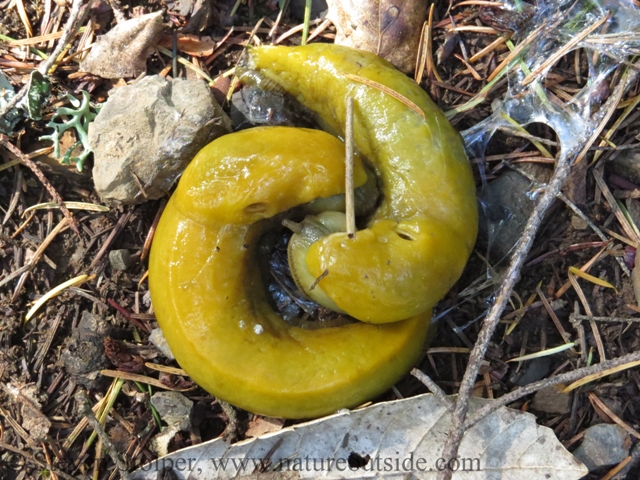
Mating banana slugs with only a twig for modesty. They tend to form a Yin-Yang shape.
Slime
The slime plays the role you might expect, keeping the slug moist for gas exchange during respiration. It also protect’s the animal’s body from sharp rocks and twigs. But it also has an unusual function.
The Banana Slug’s yellow color does help it blend with the decaying forest duff. But it is also aposematic. It warns-off potential predators.
The Banana Slug’s slime contains a mouth-numbing anesthetic! It functions like Novocain. Animals that eat the slug experience a foul taste and an unpleasantly numb mouth. This helps deter potential predators: salamanders, garter snakes, raccoons, foxes, ravens, crows, ducks, and beetles.
I have been told that the raccoons in my area have figured a clever way around the slug’s anesthetic effect. They roll the slug in dirt as a protective coating before consuming it.
The Rain Brings Old Friends
So after not seeing them for the length of the summer, I greatly enjoyed their recent appearance. I hope we get enough rain to keep them around.
References
Animal Diversity Web, University of Michigan Museum of Zoology
All About Banana Slugs (PDF), John Pearse and Jan Leonard
Related Articles on NatureOutside
Mountain Kingsnake — Beauty and Danger
Moths – Amazing Creatures of the Night!
For fun facts and useful tips, join the free Bushcraft Newsletter.

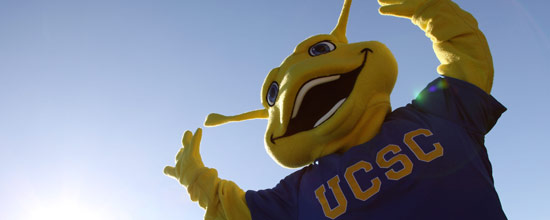
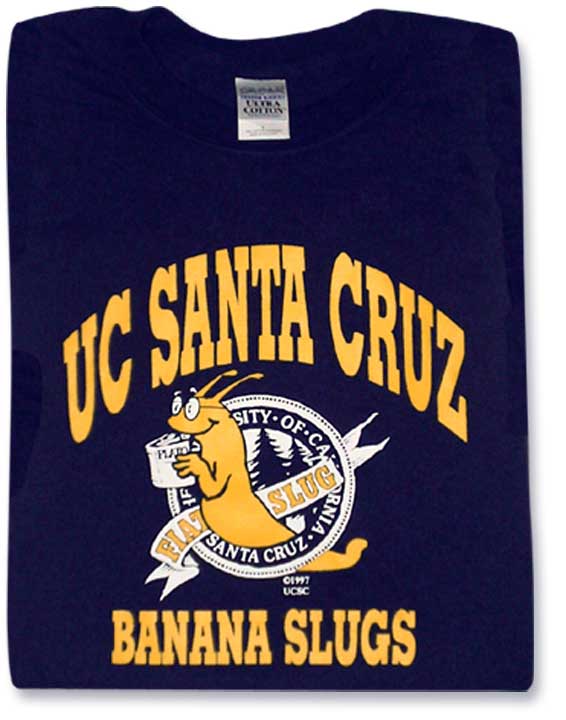


Leave a Comment